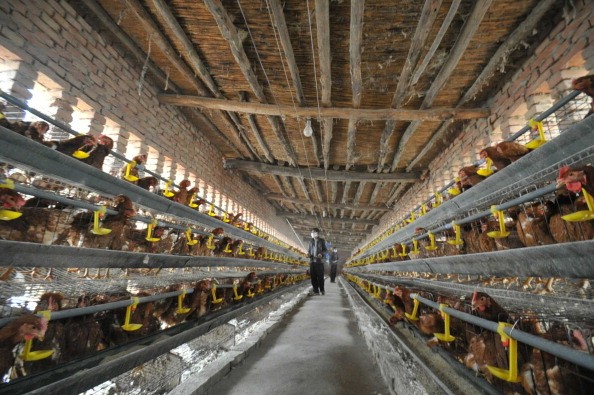More than 1,100 livestock farms in Shanghai that failed to comply with hygiene standards will be shuttered by March next year, part of the local government’s intensified efforts to curb pollution in the city.
Shanghai has already closed 1,600 farms this year that did not meet the animal epidemic prevention and waste discharge standards, the Shanghai Daily newspaper reported on Thursday.
Most of the farms shut down were caught dumping discharge that contaminated water and soil, the report said.
According to the Shanghai Water Affairs Bureau, improper waste discharge from farms has been the main cause of water pollution in suburban areas.
The decomposing animal waste releases excess nitrogen and phosphorus, decreasing oxygen content in the water. If left unattended for too long, the waste will start to discharge noxious gases like ammonia, hydrogen sulfide and methane, the bureau said.
However, due to the farms' location in the suburbs and the limited capability of Shanghai's sewage system, the discharge could not go through the city's sewage and waste management network.
The campaign was launched by the Shanghai government in 2013 that awarded subsidies to over 70 farms to build waste handling facilities. The processed waste is then directed to the city's sewage network.
However, according to a report from the Shanghai Environmental Protection Bureau, only half of the facilities are being used due to high operating costs.
It costs a farm with 5,000 pigs over 4,000 yuan ($62,920) a year to operate the waste disposal facilities, the Shanghai Daily reported.
Authorities have also been urging farm owners to invest in methane recycling projects to reduce waste.
The Shanghai Development and Reform Commission has subsidized nine farms of about 8.25 million yuan over the past two years to construct methane recycling projects. Through these facilities, methane from animal waste is processed to cut operating costs and decrease waste discharge.
Shanghai's Agriculture Committee said that it plans to reduce the number of livestock in the city. The number of pigs raised in the city will be cut from the current 3 million to just around 2 million by 2020, while cows will be reduced from 70,000 to 55,000. The number of chickens will be down by at least 10 million.
"We support the measures in the fight against pollution, but the government should also consider about the well-being of the farmers after shutting down the farms," said Zhao Guixiang, a law expert and farmer in Shanghai's Fengxian District.
"The city government should have a unified compensation policy for the livestock farmers, some of whom have been in the business for over 30 years and are not capable of doing any other jobs," he added.



























